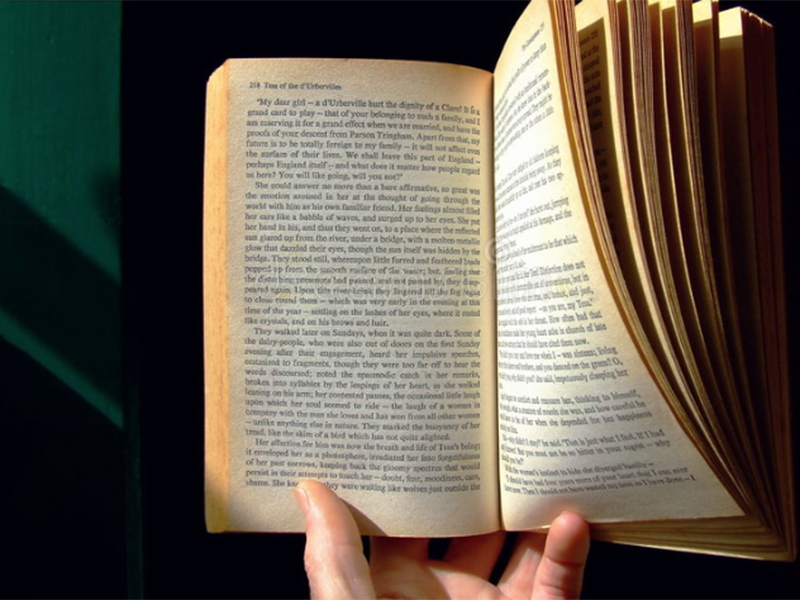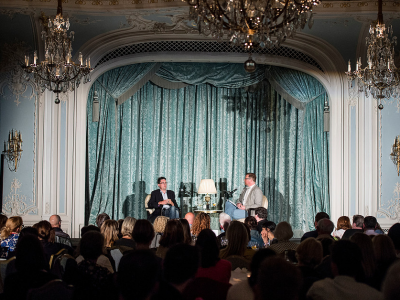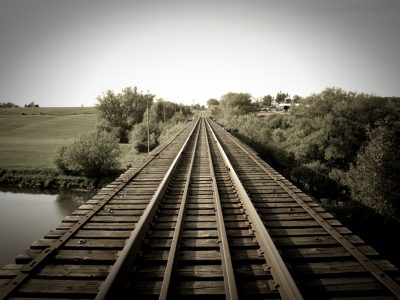How a novel from the 1800s is still relevant to today’s society
Warning: This piece does contain spoilers
It is 100 years since some women were allowed to vote. It was a major step forward in order to gain equality between men and women. Although it was later on that all women over the age of 21 were allowed to vote, it was a major shift in gender equality from centuries of female oppression. Society has moved on leaps and bounds since Thomas hardy wrote Tess of the D’urbervilles in the 19th century. Yet, it is still worryingly easy to sympathise with Tess as a modern woman. The struggles that she went through in her albeit short life because of the patriarchal society she existed in, is relatable in some way over 100 years later.
Considered one of the greatest novels of the 19th century, Tess of the D’urbevilles exposed the troubling patriarchal structures that characterised the time in which Hardy lived. His raw representations shockingly reverberate today, 100 years on. His masterpiece begins with Tess D’urberfield, the eldest of a financially strapped family find they have relations to a respected family called D’Urbervilles. Upon knowing this, Tess is sent to ‘claim kin’ whereby she is introduced to her cousin, Alec. Tess starts working as a caretaker for Alec’s blind mother but before long Alec quickly swoops in on Tess and rapes her. Returning home, Tess gives birth to a baby, the product of rape who sadly dies in infancy. Tess makes another journey to become a milkmaid where she meets and falls in love with Angel Clare. After some time, Angel proposes to Tess, unaware of her unfortunate past, and they get married. On their wedding night, Tess and Angel confess their past to one another. Unable to forgive Tess for hers, even though it was not her own doing, Angel flees to Brazil and Tess goes back home.
Angel returns home, trying to look for Tess, but finds her living as an upper-class lady with Alec. Tess then confront Alec about lying to her about Angel. In a fit of anger, she stabs and kills him. Tess returns to Angel and tells him what she has done. They spend a short week in bliss, before police find Tess and arrest her. Because of her crime, Tess is executed, but before this, she asks Angel to marry her sister and take care of her. It’s a sad series of grossly unjust events which leads to Tess’ untimely death.
The book is full to the brim of lines that demonstrate a misogynistic patriarchal society, whereby women are mere objects for men to indulge in. For instance, a scene early on in the novel, where Angel Clare spots Tess as she is milking a cow…
When she rose from her stool under a finished cow, Angel Clare, who had been observing her for some time, asked her if she would take the aforesaid creatures next. She silently assented, and with her stool at arm’s length and the pail against her knee, went round to where they stood…
She did not know that Clare had followed her round and that he sat under his cow, watching her. The stillness of her head and features were remarkable: she might have been in a trance, her eyes open yet unseeing. Nothing in the picture moved but Old Pretty’s tail and Tess’s pink hands, the latter so gently as to be a rhythmic pulsation only, as if they were obeying a reflex stimulus, like a beating heart. How very loveable her face was to him. Yet there was nothing ethereal about it: it was all real vitality, real warmth, reincarnation. And it was in her mouth that this culminated… To a young man with the least fire in him that little upward lift in her in the middle of her red top lip was distracting, infatuating, maddening.
Angel barely sees Tess as human. The animalisation of her diminishes all humane attributes and demonstrates man’s actions to project his own idea of the perfect woman, within her. The whole passage is ironic as Angel finds her completely beautiful yet she is also nothing but an object to him.
Thomas Hardy had a deep sympathy with the plight of women of the time and the constraint externally exposed by the men who ruled their lives. Tess is innocent and loveable yet a fundamentally flawed protagonist. Even though we see everything she has been through, it is always seen as having happened because of the fault of the woman. Tess’ mother tells her that she “ought to have been more careful” when she confides in her about the rape. Many characters are unable to see past her undeniable beauty and good looks that they see her as a prize to fight for and win. Clearly her fault, right?
Hardy successfully draws upon the oppressive state women lived in in a male dominated society. That women who indulge in sex, be it their fault or not were immoral and those that did not, were angels. That women who were too beautiful and were therefore only seen as object, brought it on themselves. That the gender gap that is unfortunately still significant today, was even bigger back then. It was clear, that being a woman during the Victorian era was a trying time. Tess was born into a poor family, forcibly taken advantage of and then executed because she killed her own attacker. Furthermore, all of these events happened because Tess deviated from conventional norms and was therefore regarded as a ‘decadent’ woman.
How so? Here are just a few reasons:
Firstly, Tess is judged because of sex. Even though the actual act of rape is uncertain in the book, it is heavily implied that Alec did rape Tess. She was taken advantage of, yet it was her who would take the brunt of it. She would be judged because of someone else’s’ sick actions. Then later on, when she confesses this to Angel, he decides that he can no longer be with a ‘fallen woman’ (a woman who was no loner pure – a term used during this era), demonstrating the hypocrisy of society at that time, as Angel was also not a virgin himself.
“O Tess, forgiveness does not apply to the case! You were one person; now you are another.”
Tess was also judged because of her family. Being from a poorer background meant that Tess was already at a disadvantage in her life. Being the eldest child, she was forced to find work so that she could help her family. When she is raped and falls pregnant, Tess returns home, only to have her mother tell her that SHE ought to have been more careful. She is perceived as a part of the artisan class – one that also seems to be doomed for extinction. Their quality of life is portrayed to be in decline due to capitalist economic forces and the industrialisation of agricultural labour.
Hardy writes a comparison between Tess’ family and Alec’s, which also shows the importance of money to both families:
“The village had formerly contained, side by side with the agricultural labourers, an interesting and better-informed class, ranking distinctly above the former – the class to which Tess’s father and mother had belonged – and including the carpenter, the smith, the shoemaker, the huckster, together with nondescript workers other than farm-labourers; a set of people who owed a certain stability of aim and conduct to the fact of their being life-holders like Tess’s father, or copyholders, or, occasionally, small free-holders. But as the long holdings fell in they were seldom again let to similar tenants, and were mostly pulled down.”
All in all, Tess was not given a chance in life. Living in a patriarchal society, as a woman, was or even is extremely difficult and there was often little chance for women. It still makes me frustrated thinking about this novel. Why did Tess get punished for getting raped? Why was Angel so hypocritical by leaving her because she was no longer ‘pure’ when he himself was not a virgin? And why was she hung (spoiler alert) because she killed Alec out of defence? Now, reading it seven years later, the same reaction still stays with me. Feeling shocked with the way her life unfolded into a series of such traumatic events, and then for the blame to be only put upon herself awakens the feminist inside of me. Yet it is still one of my favourite novels, and one that should always be read for the rest of time will never cease to be relevant.
Reading the novel made my 15-year-old self extremely angry (as I am sure others will agree too) for many reasons. What made me so frustrated when I finished the book for the first time, was that all of the unfortunate events that occurred in Tess’ life, were said to have happened because of her own actions. Some of these qualities are still detrimental and encouraged in today’s society. Yes, equality has improved, but I am sure that many modern day women will be able to recall times when their gender played a part in shaping actions or events.





